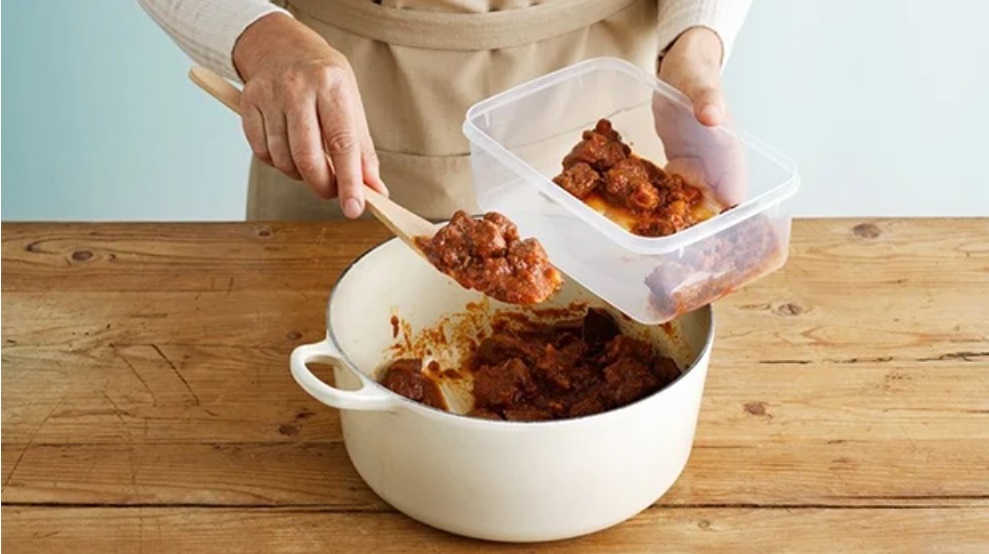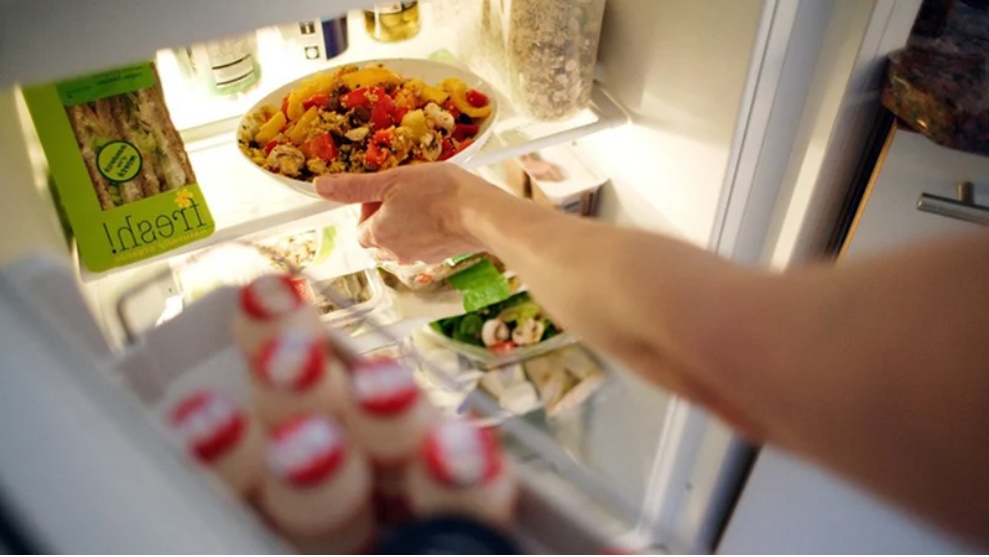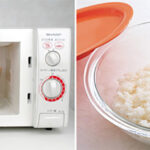Improperly stored leftover food can cause acute food poisoning and other illnesses. According to experts, cooked beans are only safe for approximately two hours after cooking and are susceptible to spoilage if left at temperatures between 4-60 degrees Celsius. Beyond this timeframe, improper hot or cold storage can facilitate bacterial growth and contamination.
Reheating some foods can result in a loss of flavor, color, and nutritional value. In many cases, it can even produce harmful toxins.
However, experts also note that leftover food is not necessarily unsafe to consume, but proper storage methods are crucial.
Allow food to cool before refrigerating

For leftovers, it is essential to let the food cool completely before placing it in airtight containers or wrapping it tightly with plastic wrap and then storing it in the refrigerator.
Note that hot food should not be placed directly in the fridge. Sudden temperature changes can cause condensation, creating an ideal environment for mold growth.
Different types of leftovers should be stored in separate containers to prevent cross-contamination.
Promptly refrigerate perishable items

Perishable cooked food should be refrigerated within two hours. It is also recommended not to keep leftovers in the fridge for an extended period.
Typically, reheating leftovers for a few minutes is sufficient to kill any harmful bacteria, making them safe to consume.
The ideal temperature for the refrigerator’s cool compartment is below 4 degrees Celsius, while the freezer should maintain a temperature below 0 degrees Celsius.
Storage tips for common leftover foods
Rice
Rice requires careful handling if not consumed immediately. Ensure it cools to room temperature, as bacteria can quickly develop within two hours at room temperature. Once cooled, transfer the rice to a sealed container and store it in the refrigerator’s cool compartment, where it will remain fresh for approximately 3-4 days.
Hard-boiled Eggs
Hard-boiled eggs can be stored in their shells in a sealed container or a plastic bag in the refrigerator. It is recommended not to keep them for more than a week.
Cooked Chicken
Cooked chicken can be stored in the refrigerator for 3-4 days. Ensure it is placed in a sealed container and stored in the cool compartment as soon as possible. For a whole chicken, consider wrapping it tightly or using an airtight container and storing it in the freezer.
Stewed or Braised Meat
Stewed or braised meat can be stored in sealed containers in the refrigerator’s cool compartment for 3-4 days. If you wish to keep it longer, portion it into meal-sized servings and freeze them. When ready to eat, thaw and reheat a portion. This method can extend the meat’s shelf life to 2-3 months. Once thawed, consume the meat without refreezing.
Cooked Seafood
Seafood is highly perishable, so it is best to cook only what will be consumed. If there are leftovers, allow them to cool, then store them in a sealed container in the refrigerator. Ideally, consume the seafood the next day.
According to Khoevadep
3 Types of Fish That Are Prone to High Levels of Heavy Metal Contamination, and the First One Is a Common Dish in Vietnam
Heavy metal contamination in fish can lead to a buildup of these toxins in the body, particularly affecting the liver and kidneys, which are responsible for filtering and excreting them. It is important to be mindful of the potential health risks associated with consuming such fish in excessive quantities.






































